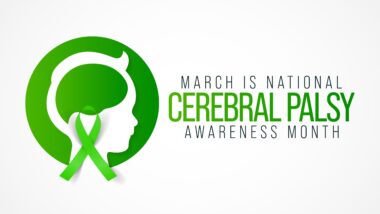Top Class Actions’s website and social media posts use affiliate links. If you make a purchase using such links, we may receive a commission, but it will not result in any additional charges to you. Please review our Affiliate Link Disclosure for more information.

In a perfect world, the U.S. justice system would function exactly as it is supposed to: A person who has committed a crime is found guilty and sentenced, while a person who is not guilty is acquitted by a jury of their peers and returns to their normal life.
But of course, this isn’t a perfect world.
Juries and prosecutors’ offices and police departments and witnesses all are human — and humans can make mistakes.
When this system fails an innocent person and they are wrongfully convicted, it can cost them their job, reputation, income and, in the worst-case scenario, years of their life.
And while they are sometimes lucky enough to be able to free themselves from that situation through the courts, none of them can get that time back — and some can’t even be compensated for it.
Oct. 2, 2021, was the eighth annual Wrongful Conviction Day, which was started by the Innocence Network to raise awareness of the causes and remedies of wrongful convictions.
Are wrongful convictions common?
While there is obviously no way to know how many people are wrongfully convicted each year, there is data available on how many people are exonerated annually.
According to the National Registry of Exonerations’ annual report, published March 30, 2021, 129 people were exonerated in 2020.
About half of them — 64 — had been found guilty of homicide.
Thirteen had been wrongly convicted of sexual assaults; 17 for other violent crimes, such as robbery and assault; and 35 for nonviolent offenses, such as drug crimes and theft.
Exonerees in 2020 lost a total of 1,737 years or an average of 13.4 years per person, according to the report.
The National Registry of Exonerations says there have been a total of 2,737 exonerations from 1989 through 2020, adding up to thousands of years of innocent people’s lives lost, while the true perpetrator goes unpunished.
Contributing factors
In some cases, a defendant who is not guilty of a crime but convicted anyway was simply in the wrong place at the wrong time.
However, there are other contributing factors to wrongful convictions.
Official misconduct was known to be a factor in 87 of the 129 exonerations in 2020, including 80 percent of the murder cases, according to the National Registry of Exonerations.
Mistaken witness identification played a role in 30 of the exonerations in 2020.
Thirteen of the cases involved false confessions.
Perjury or false accusations were found to be a factor in 103 of the cases in 2020, while forensic evidence that was false or misleading was found in 38.
A year-end report from the Death Penalty Information Center indicates six death-row inmates were exonerated last year, bringing that total to 173.
In a 2018 opinion piece for the Chicago Tribune, lawyer and author John Grisham wrote it’s nearly impossible for an innocent person in prison to be released.
Grisham, who is also on the board of directors for the Innocence Project, says the organization has aided in the release of 349 people — including 20 on death row — over the last 25 years thanks to DNA testing.
According to Grisham, over 2,000 total people were exonerated in the U.S. during that same period.
Federal compensation
At the federal level, Congress passed the Justice for All Act in 2004.
The act, passed with bipartisan support, according to Pew, guarantees $50,000 for each year spent in prison for those who are exonerated of federal crimes; that figure doubles to $100,000 for each year an innocent person spends on death row.
The National Registry of Wrongful Convictions, for a federal exoneree to receive compensation, they must meet certain eligibility requirements.
First, they must receive a pardon for innocence or have their conviction reversed or set aside on the grounds they are not guilty, then found not guilty at a new trial or a rehearing.
The U.S. Court of Federal Claims makes the decision on whether an exoneree will be compensated.
States with compensation
Thirty-five states, along with the District of Columbia, have laws on the books that provide for compensation in cases where a person convicted of a crime is exonerated.
The majority of those states are in line with federal law, providing $50,000 or more per year of imprisonment, according to Innocence Project data. Washington, D.C., offers the most, at $200,000 for each year of wrongful imprisonment.
Nevada has a sliding scale, offering $50,000 per year of wrongful incarceration for up to nine years; $75,000 per year for 10 to 20 years; and $100,000 per year for 20 or more years.
States with these statutes say claimants must meet a reasonable standard of proving their eligibility, establishing “by a preponderance of evidence” that they did not commit the crime, the Innocence Project says.
In 22 of the 35 states with compensation laws, the courts adjudicate claims through the courts. Others designate state boards or commissions to decide on the claims.
As protection for taxpayers, some states also require exonerees who receive compensation at the state level and go on to win federal civil rights lawsuits or settlements to reimburse the state, according to the Innocence Project.
On the flip side, in some cases, if an exoneree first wins their federal civil rights lawsuit then attempts to also get compensation from the state, they would be entitled only to an amount from the state subtracted from any civil awards.
Five states — Colorado, Kansas, Nevada, New Jersey and Ohio — have this offset provision.
A few states provide additional compensation for wrongfully convicted people who spent time on death row or had post-release supervision, according to the Innocence Project.
Colorado and Washington each provide an additional $50,000 per year for death-row exonerees.
Colorado, Kansas, Minnesota and Washington each provide an additional $25,000 for each year an exoneree spent on probation or parole or on the sex offender registry.
In March 2021, Idaho’s governor signed into law a bill that includes $62,000 for each year the wrongfully convicted person was in prison or $75,000 for each year they spent on death row, the Innocence Project reported.
Montana also adopted a bill in 2021 allowing for wrongful conviction compensation — but some proponents were not happy with last-minute changes requested by the governor, according to the Missoula Current.
House Bill 92 allows $60,000 for each year of wrongful imprisonment, with an additional $25,000 for each additional year the person spent on parole or probation, or registered as a sex offender.
However, thanks to an amendatory veto by Governor Greg Gianforte, anyone pursuing a claim under HB92 must forfeit their right to bring a civil-rights lawsuit against state or local prosecutors or seek other damages through the courts.
The governor also added to the bill that the county that prosecuted the wrongfully convicted individual is responsible for paying 75 percent of the award. Originally, the state was responsible for the entire payment.
Montana already had a statute in place regarding compensation for the wrongfully convicted. However, the state offered only a program to help exonerees access post-secondary education, the Missoulian reported, and lawmakers say the program had never been funded or used.
Rhode Island is the most recent state to add a wrongful conviction compensation law.
Governor Dan McKee signed a bill Sept. 16, 2021, to provide exonerees with $50,000 for each year spent in prison, or $137 for every day they were incarcerated if it was under a year, the Brown Daily Herald reported.
Rhode Island exonerees also can seek up to $15,000 in damages for attorneys’ fees, housing, reintegration services, mental and physical health care, and more.
In a press release, McKee said the “anger and suffering” the wrongfully convicted face is hard to imagine, adding that the state owed them “the compensation they deserve.”
“Although it can never give them back the time that they lost, we hope that it can help them to get back on the track to a successful life,” he said.
Nineteen states also provide non-monetary compensation, which can be of great help to an inmate re-entering society.
Fourteen states provide tuition assistance, while nine provide help with medical expenses, according to the Innocence Project.
Additional help in some states comes in the form of assistance with job search and housing, counseling and re-entry services.
However, only one state — California — provides exonerees with assistance immediately upon exoneration.
States without compensation
In states that do not have laws on the books regarding compensation for those who are wrongfully convicted and imprisoned, exonerees must go through the courts to either seek compensation or persuade state legislatures to pass a special appropriation so they can be paid, according to Pew Trusts.
Both of those options leave something to be desired.
As Pew points out, lawsuits take a lot of time and money and can be difficult to win, and there’s no guarantee of the outcome when trying to persuade a legislature.
According to the Innocence Project, there are 13 states that do not provide compensation to exonerees: Alaska, Arizona, Arkansas, Delaware, Georgia, Kentucky, New Mexico, North Dakota, Oregon, Pennsylvania, South Carolina, South Dakota and Wyoming.
In some states previous attempts at establishing wrongful conviction compensation have failed.
For example, the issue failed to make the ballot in Arizona in 2012 after the petition failed to get enough signatures.
The proposal would have entitled those wrongfully convicted of a crime to receive $1,000 per day they were incarcerated in connection with conviction.
Beyond 2021
Some strides were made for the wrongfully convicted during 2021, but more changes are on the way next year.
A bill introduced for the 2022 legislative session in Florida, like previous similar bills, would increase the window for a person to seek compensation from 90 days to two years, according to Florida Politics.
The bill also would strike down what is called the “Clean Hands” provision. Under current Florida law, a person is precluded from seeking compensation if they have had multiple nonviolent felonies.
Of the states with wrongful conviction compensation laws, Florida stands alone in barring such compensation because of unrelated crimes, Florida Politics reported.
In Louisiana, beginning in July 2022, exonerees will be eligible for $40,000 per year of wrongful imprisonment; currently they are only eligible for $25,000 per year, according to The Associated Press.
The compensation is capped at $400,000 over 10 years, or $250,000 if the person opts for a lump sum in lieu of annual payments.
Exonerees who had received compensation since September 2005 will be eligible to seek supplemental compensation that reflects the new amount.
Petitions for the supplemental compensation must be filed by July 1, 2023.
Whether more states will pass legislation to compensate the wrongfully convicted remains to be seen.
Don’t Miss Out!
Check out our list of Class Action Lawsuits and Class Action Settlements you may qualify to join!
Read About More Class Action Lawsuits & Class Action Settlements:
- Families Plan Class Action Lawsuit Over New York’s Nursing Home Deaths From COVID-19
- Meet Danny Karon: ‘Your Lovable Lawyer’
- There are a lot more auto recalls than there used to be. Here’s why.
- OGX Shampoo, TRESemmé, WEN: Johnson & Johnson not the only brand to be accused of putting dangerous chemicals in shampoo















5 thoughts onFor the Wrongfully Convicted, Justice Can Be Hard to Come By
Friend of mine in louisiana was convicted of a felony charge attempted something or another rape! In the court transcript it has the judge and DA or ADA discussing how the victim was beat up but that everyone agreed including the victim that there was never any sexual contact or even an attempt at sexual contact! He is labeled a tier one here in louisiana and was originally told he would not have to sign up on the sex offender registry but was forced to Bubbie PO!
It has now been well over 15 years and he is still having to register! Do to having to register as a sex offender he has been beyond embarrassed to fill out applications for a job ! So due to the added penalty that isn’t listed in his sentence by the judge he has been unable to psychologically search for or maintain any legal form of employment! He has been in and out of jail on small drug offenses where he was only doing what he felt he had to in order to maintain his habits! He was also at some point locked in a situation with a female that uses the sex offender registry to her advantage to keep him pretty much prisoner under her roof as she pays for his extra penalty that he wasn’t sentenced to! This same female has submitted in his registry paper work for a residence plan a certain vehicle was allowed to him to use at his free will ! The make, model, color and vin are listed on the form that any and all law enforcement, probation and parole and the judicial system along with the state police all saw, came across, reviewed, received a copy of and someone had to approve the residence plan! He has since been reported as stealing the same said vehicle by the same female that gave him written permission on legal documents that are on file with our local law enforcement agencies and the Louisiana State police ! They returned the vehicle to her drive way arrested and convicted him of it and now sits in the parish jail awaiting a court date that he will be convicted of the same crime again involving the same vehicle and given time served because the female called them and told them she wanted to drop the charges! In her eyes that is her dropping the charges because he is getting time served and being released! I explained that isn’t the charges being dropped but yet another conviction on his record that he doesn’t deserve or need! He goes to court in the next week or two and Im going to attempt to call the DA’s office and anyone else that might listen locally but I’m sure no one is going to want to hear anything about the fact they possessed proof he had full permission to use the vehicle as his own but yet the arrested and convicted him of stealing it or unauthorized use of it not sure the actual charge they went with but then to top it off they are doing it again! So that already not going to work I am going to present the DA’ s office with a copy of the paper showing he had full use rights to the vehicle and then show up for court and attempt to admit in to court the evidence of his being innocent of these current charges and bring up the fact of the previous illegal conviction! From there if I don’t end up in jail myself I would like help with getting his sec offense charge from almost 25 years or so ago corrected legally to the rightful charge of assault and battery or something along those lines and have hom removed from the sex offenders registry! With stipulations of the State, parishes and all cities pay to have notices sent out to any and all places in all of these years that he was forced to pay to have his name and character drug through the mud on his notices he had to have sent out as a sexual predator with a correctional statement saying that he was wrongfully convicted of the sex offense and that he should have never been arrested on a sex offense to begin with! An apology from each individual that was directly involved in this particular case should also be sent out with this notice! Judge, detectives, arresting officers, district attorney and his staff that prosecuted the case, each head of Probation and parole over the years akong with any staff involved in any way with his supervision or insuring he maintain his registry, any and all public defenders that worked on this particular case and the many other cases that ultimately stem from this illegal charge that has set him in a long path of criminal behavior due to his embarrassment of being labeled a sexual predator! Not saying his continued criminal activity was right at all but ultimately led to his drug addictions that caused hom to continue to be involved in the criminal elements that exposed him to the possibility of being arrested again! But had he not had that label put on him he might very well have cleaned up his act and became a productive citizen in society after completion of his sentence that should have been some type assault charge not a rape or sex offense charge at all as it’s clearly stated in his court transcript on sentencing day that everyone agreed that their wad never any type of sexual touching or an attempt to sexually touch the victim! Also the 15 year registry for tier one sex offenders should be just that 15 years unless arrested and convicted of another sex offense as to them the 15 years would start over! I’m sure this isn’t posted in the correct spot but hope that someone capable and willing to help in these cases sees this and teaches out to me asap! Thanks and sorry if not in the right spot or the correct way to ask for help!
Got a friend in prison currently and his rights are being violated everyday. They had a women guard strip search him and she grabbed his penis. He wrote down and documented the countless infractions this state prison in northern Pennsylvania has done, and it disgusts me. I don’t know how I can help this gentleman because I can’t seem to get through to anyone. I call and tell them what’s going on but it’s like beating a dead horse. Noone cares, you receive nothing but ignorance from any prison official because they are all miserable and hate there lives. I really believe my friend has a solid case against two prisons, but who am I but only a bathroom attorney. I can’t flush a charge like you guys can lemme tell ya.
Add me state of north Carolina convicted me for felonies that occured while I was incarcerated in another jail. After completing the time I was still forced to be on probation for 11 months harassed and violated losing a great career all to find out I had maxed out the sentence before even being out on probation please help
Wrongful mentally il person the go mad with him at the jail and went it his file and got cas that were they out years i ago made up a story to put in jail and me to the file
State of Oklahoma wrongfully convicted the mentally ill , disable individuals without their knowledge of what was going on. We’re taken advantage of.most are left in Lexington correctional facilities with deteriorating health ?